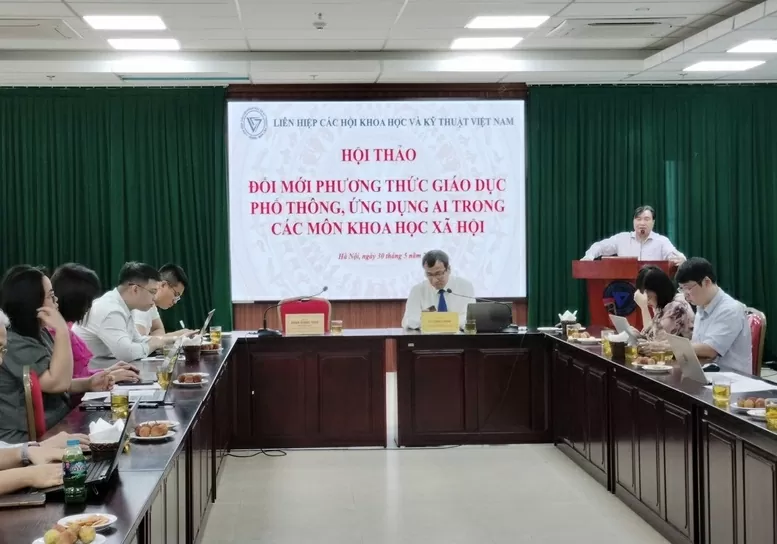 |
| Workshop "Innovation in general education methods, application of AI in social sciences". (Photo: Hoang Giang) |
Today (May 30), the Vietnam Union of Science and Technology Associations (VUSTA) organized a workshop on "Innovation in general education methods, application of AI in social sciences". The workshop aimed to analyze and make recommendations from experts, scientists and school practices.
Speaking at the opening of the workshop, Associate Professor Dr. Pham Quang Thao, Vice President of the Vietnam Union of Science and Technology Associations, said that in the context of strong digital transformation, educational innovation is an inevitable requirement. Applying AI in teaching not only improves the quality of learning but also contributes to the formation of self-study skills, critical thinking and civic awareness for students.
In particular, for social sciences such as history, geography, civics, and literature, which are considered dry and uninteresting, AI can enliven the learning and teaching process. Innovation lies not only in the content, but more importantly, in the approach to knowledge, in line with the trend of personalized, flexible, and technology-integrated education.
Sharing the same view, Associate Professor Dr. Le Cong Luong, Head of the Department of Science, Technology and International Cooperation, Vietnam Union of Science and Technology Associations, said that general education today is still heavily one-way communication, lacking the ability to stimulate critical thinking and creativity in students. In particular, social science subjects such as History, Geography, Literature, and Civic Education, although playing a role in shaping thinking, personality, and ethics, are often taught dryly and unattractively.
The application of AI is expected to create a boost for general education, helping to reduce the administrative burden for teachers, innovate teaching methods; students can access knowledge according to their abilities, develop self-study and research skills; schools and society can improve training efficiency, contributing to preparing human resources to adapt to the knowledge economy .
Mr. Le Cong Luong suggested that the Ministry of Education and Training should soon issue a framework for guiding the application of AI in general education programs. Strengthen cooperation between schools - businesses - experts to develop AI learning platforms suitable for Vietnam's reality. At the same time, have policies to support teacher training, especially in social sciences. Organize competitions and experiential activities for students to apply AI to solve social problems.
Sharing experiences in innovating Geography teaching at high schools in Hanoi, MSc. Vu Hai Nam, Faculty of Geography, University of Social Sciences and Humanities (Vietnam National University, Hanoi) said that currently, many schools such as: Hanoi-Amsterdam High School for the Gifted, Social Sciences and Humanities High School, Nguyen Hue High School, Viet Duc High School, Kim Lien High School, Phan Dinh Phung High School... have proactively applied information technology, gradually bringing AI into teaching.
Some teachers also use ChatGPT to brainstorm lesson ideas, create questions, update current knowledge, analyze geographical phenomena, or design practice exercises. AI also supports grading, classroom management, helping teachers save time and personalize the teaching and learning process.
However, this process still has many shortcomings such as the large difference between schools in terms of implementation conditions; many teachers approach technology at a basic level, mainly for illustration purposes and not for developing students' abilities. Preparing lessons integrating AI requires more effort, and information needs to be carefully checked before teaching.
Expressing her opinion on this issue, Dr. Nguyen Thi Nhu, Faculty of Philosophy, University of Social Sciences and Humanities (Hanoi National University) said that applying AI in teaching is a suitable solution to innovate educational methods, especially for subjects in the social sciences. However, currently some AI tools use unverified data, which can cause knowledge distortion if not controlled.
Furthermore, students can abuse AI, look up machines, copy without developing independent thinking. Therefore, AI can only be effective when properly integrated, with clear pedagogical orientation and reasonable monitoring mechanisms.
"Currently, the application of AI in teaching in general, and in social sciences in particular, although still has many challenges, if there is synchronous coordination between schools - teachers - managers and the technology community, AI application will contribute to improving the quality of education, forming a generation of citizens with the capacity to integrate and develop sustainably in the digital age," Dr. Nguyen Thi Nhu emphasized.
Source: https://baoquocte.vn/ung-dung-tri-tue-nhan-tao-trong-giao-duc-316068.html


![[Photo] 60th Anniversary of the Founding of the Vietnam Association of Photographic Artists](/_next/image?url=https%3A%2F%2Fvphoto.vietnam.vn%2Fthumb%2F1200x675%2Fvietnam%2Fresource%2FIMAGE%2F2025%2F12%2F05%2F1764935864512_a1-bnd-0841-9740-jpg.webp&w=3840&q=75)
![[Photo] National Assembly Chairman Tran Thanh Man attends the VinFuture 2025 Award Ceremony](/_next/image?url=https%3A%2F%2Fvphoto.vietnam.vn%2Fthumb%2F1200x675%2Fvietnam%2Fresource%2FIMAGE%2F2025%2F12%2F05%2F1764951162416_2628509768338816493-6995-jpg.webp&w=3840&q=75)




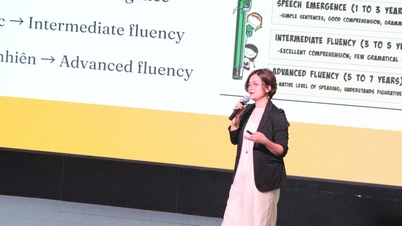

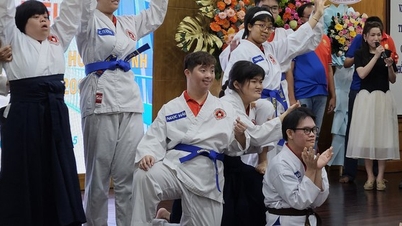

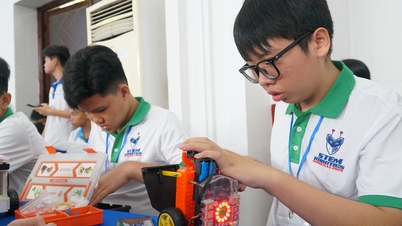
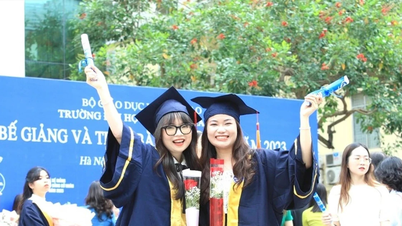

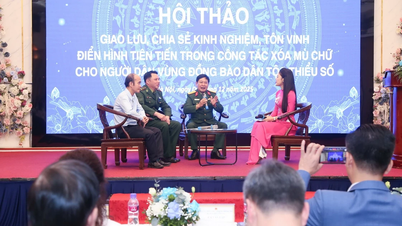
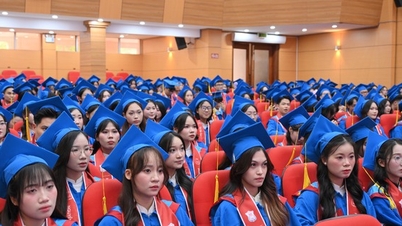





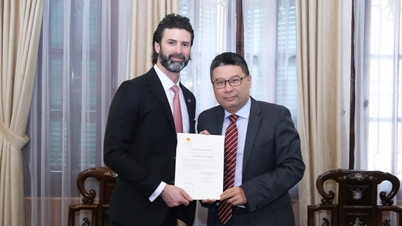
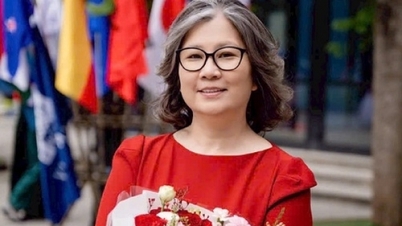
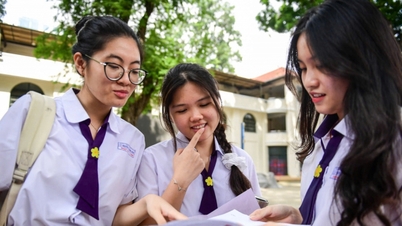
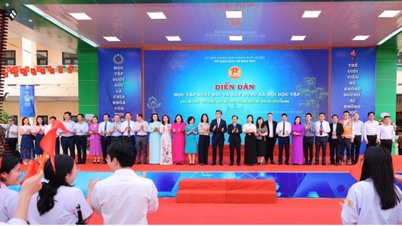
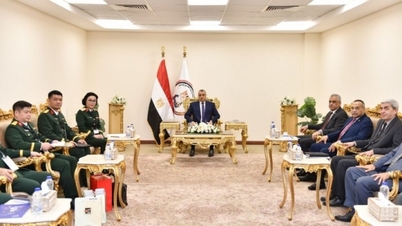










































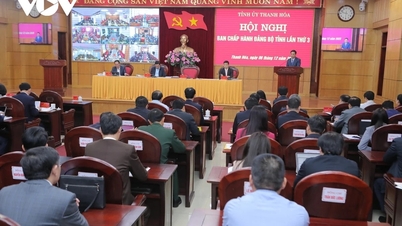





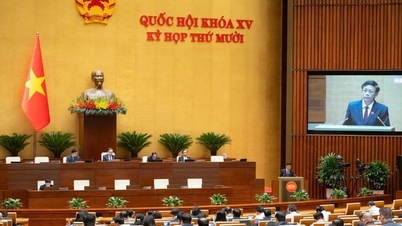


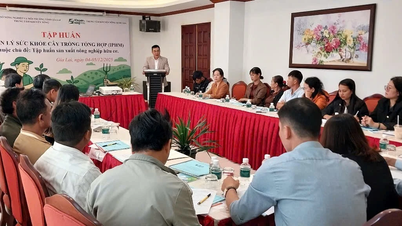

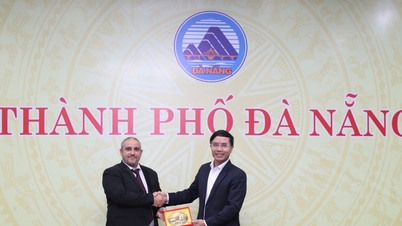

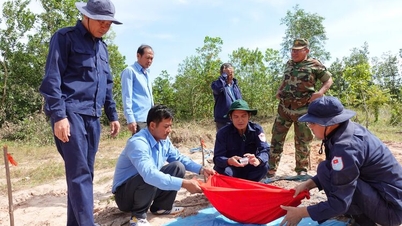

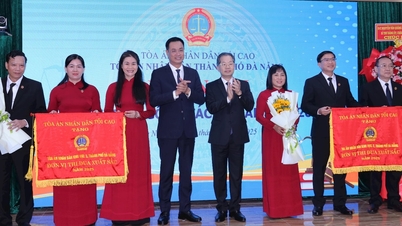
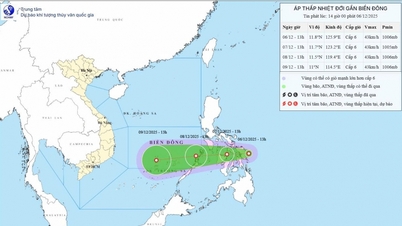












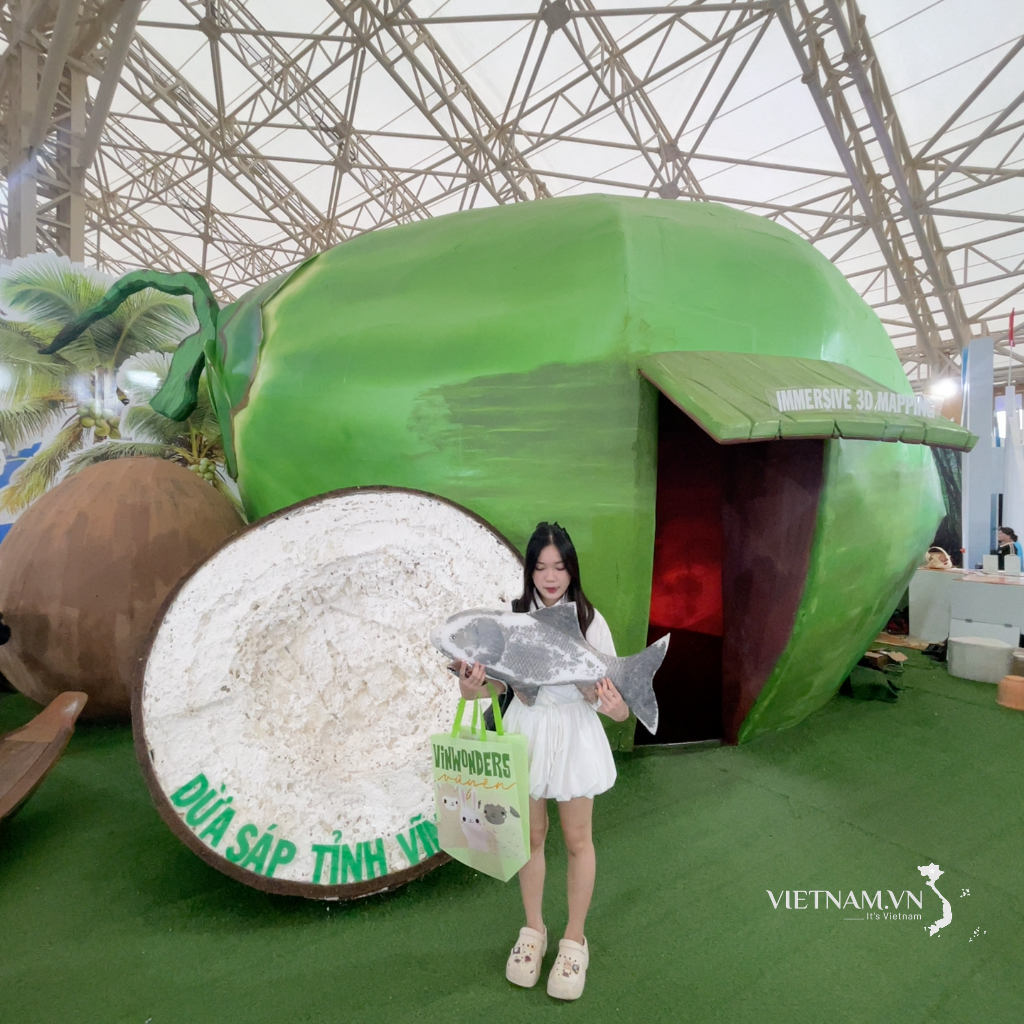





Comment (0)